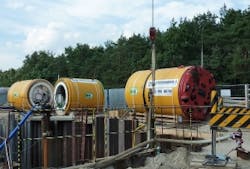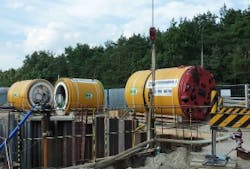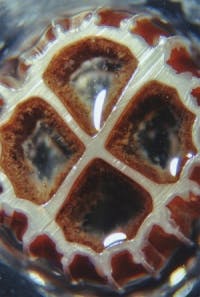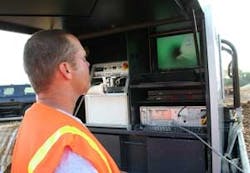Wastewater project in Warsaw reaches milestone with completion of pipe jacking
WARSAW, Poland, Apr. 6, 2011 -- The underground connection to the new Czajka wastewater treatment plant in Warsaw, Poland, has been completed. When finished, the state-of-the-art wastewater treatment system will treat the wastewater produced by 80 percent of the city's residents, improving the quality of water and life along the banks of the Vistula River.
Hydrobudowa 9 S.A., PRG Metro Sp.z.o.o. and KWG (PBG Group) have been commissioned to connect the plant with the underground wastewater network.
The Polish contractors selected the pipe jacking method for their tunnel project. Two Herrenknecht AVND micromachines were used for the difficult drives totaling 5,860 meters. Despite extraordinarily large diameters of 3 meters, depths of 10 to 14 meters, and extreme winter conditions, the Herrenknecht machines achieved performances of up to 36 meters a day.
The separation of excavated solids from fluids was done utilizing the Herrenknecht Separation Plant HSP500, providing a capacity of 400 to 500 m³/h depending on the particle size distribution.
During the frigid winter months of 2010, the site team continued tunneling work, completing a total of 16 drives, some with short distances of about 80 meters and some with long-distance sections of 800 meters and more.
The pipe jacking portion of the project was completed December 14, 2010, and represented a significant milestone for the Warsaw wastewater project.
To complete the entire sewer system and connect it with Czajka wastewater treatment plant (WWTP), a 1,300m long tunnel crossing the Vistula River must be constructed. The project managers have selected a Herrenknecht large diameter tunnel boring machine for the mission.
###



